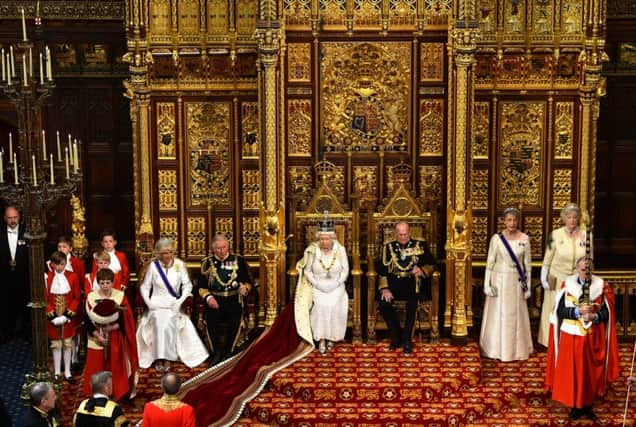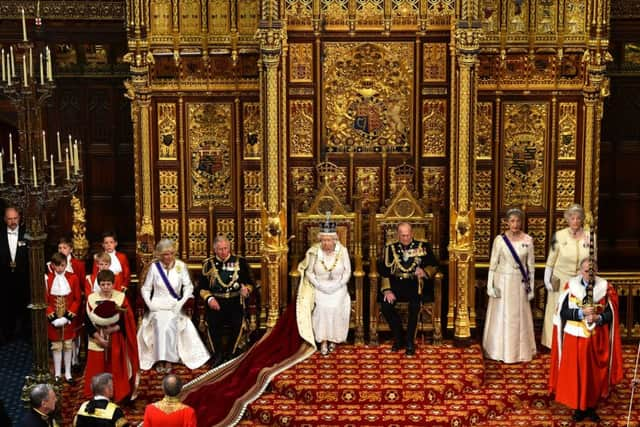John Curtice: Queen’s Speech not unfettered Toryism


There is certainly a radical true blue Tory seam running through the first Conservative Queen’s Speech in nearly 20 years. It is going to be more difficult for trade unions to call strikes and to manage their political funds. Social housing is to be sold to their tenants at a discount. And the government is to commit to the statute book its election pledges to keep taxes down.
There is some potentially unpalatable medicine too. In-work benefits are to be frozen. The legislation needed to start the first phase of HS2 – not the most popular of projects amongst those living along its proposed route – is to be introduced. Meanwhile, next month’s emergency budget should tell us where the axe is to fall on public spending.
Advertisement
Hide AdAdvertisement
Hide AdYet this was far from being an unfettered speech. It reminded us of compromises made on the way to electoral victory – and signalled potential difficulties to come.


There is more devolution, not only for Scotland, but for Wales and perhaps England’s cities too. The product of apparent panic at the possibility that last September’s independence referendum might be lost, this is hardly a traditional true blue Tory tune. The move promises plenty of skirmishes in the months ahead as the large phalanx of SNP MPs seek to strengthen legislation from a UK government whose electoral weakness north of the Border inevitably puts it on the back foot.
Meanwhile, there is the most high-profile proposal of all: the promise to hold a referendum on Britain’s membership of the European Union.
The genesis of that proposal was, of course, the significant electoral challenge posed by Ukip during the last parliament. Mr Cameron’s attempts to “renegotiate” Britain’s relationship with Europe threaten to dominate the political agenda for the next 18 months and run the risk of creating a serious fissure within his own party.
Equally, there was a reminder, too, that, unexpected though Mr Cameron’s victory might have been, it was decidedly a slim one, vulnerable to the first whiff of backbench rebellion.
Scrapping the Human Rights Act already seems to be heading for the long grass, thanks to doubts amongst some Tory MPs.
Little wonder Mr Cameron tried to seize the moment. It might not last very long.
l John Curtice is Professor of Politics at Strathclyde University